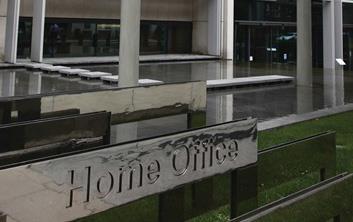
New legislation to replace the Official Secrets Acts of 1911, 1920 and 1939 tells us a great deal about how perceived threats to national security have changed over the past century.
During two world wars, Britain had clear enemies – notably, Germany and its allies. At home, the risk was from foreign agents. Espionage is still a danger, says the government, but so too are cyber warfare, disinformation, interfering with elections and even assassination. And we no longer have clearly defined enemies: so-called state threats may come from foreign powers with which the UK has trading and diplomatic relations.
So the National Security Bill, which was published last week, is targeted at hostile activity rather than hostile states. It defines ‘foreign power’ to include not only a foreign government or one of its agencies but also the ruler of a foreign state or its governing political party. People who know that they are working on behalf of a foreign power, or ought reasonably to know, may be caught by the bill’s prohibitions.
These include sabotage, which becomes a specific offence. This is broadly defined as damage to an asset for a purpose that the defendant knows, or ought reasonably to know, is ‘prejudicial to the safety or interests of the United Kingdom’. It can be committed in the UK or abroad. Because sabotage may have devastating consequences, the maximum penalty will be life imprisonment. That sentence can also be imposed for obtaining protected information, or disclosing it to a foreign power, for a purpose prejudicial to the UK’s safety or interests.
Assisting a foreign intelligence service will be an offence. Another innovation is the theft of trade secrets for the benefit of a foreign power. This can be committed abroad if the business information is under UK control. Both offences will be punishable with up to 14 years imprisonment.
The new offence of foreign interference may take forms that are not immediately obvious from a reading of the bill. It will become an offence to set up a ‘troll farm’ – a unit using false identities to manipulate public opinion. A disinformation unit could, for example, be used to undermine public health in the UK by misleading people into thinking that an effective vaccine was dangerous.
The National Security Bill is full of unexpected twists. If you commit an offence which is not mentioned in the legislation and you were working for a foreign power, that can be an aggravating factor leading to a longer sentence.
Other examples suggested by the Home Office (pictured) include blackmailing MPs into supporting a foreign power; and spreading false information among voters in a particular community with the aim of getting a foreign agent elected to public office.
Another new power in the bill is easier to grasp. It envisages a military aircraft – which I suppose could be anything from a drone to a bomber – crashing somewhere in the UK. In that event, classified equipment might be scattered over a wide area. The police will be given powers to cordon off the crash site – ‘by means of tape marked with the word police’ – so that spies will not be allowed to enter the area or fly cameras over it.
The National Security Bill is full of unexpected twists. If you commit an offence which is not mentioned in the legislation and you were working for a foreign power, that can be an aggravating factor leading to a longer sentence. The same principle applies to electoral offences. If you sue the government in a case involving national security, you may be refused damages or awarded a reduced sum if you were involved in terrorism or if the government could not have prevented the harm.
There are to be new search and arrest powers. Travel and communications restrictions – so-called prevention and investigation measures – may be imposed on individuals suspected of working for a foreign power. And the bill narrows the range of circumstances in which individuals convicted of specified terrorism offences are eligible to receive civil legal aid.
One thing the bill does not yet do – because the government isn’t ready – is to set up the foreign influence registration scheme promised by the home secretary last week. The idea is to make spies register on arrival in the UK – with the risk of arrest if they do not. Ministers do not want to deter legitimate activities by foreign states but they have had plenty of time to work out what activity will need to be registered. Leaving major changes to be added as the bill goes through parliament does not bode well.
The government insists that its interference with freedom of expression is necessary in the interest of national security. To ensure human rights compliance, the Law Commission had recommended the creation of an independent statutory commissioner who could investigate allegations of secret wrongdoing. As a last resort, the law reform advisers called for a public interest defence for intelligence officers, public servants and journalists alike.
There is no sign of those safeguards in the bill – and there never will be.
































4 Readers' comments